They are as young as 7 and as old as 75. Some have recently fled their homes, while others have been displaced for decades. Take a moment to meet 13 courageous refugees, who have overcome unthinkable situations around the world.
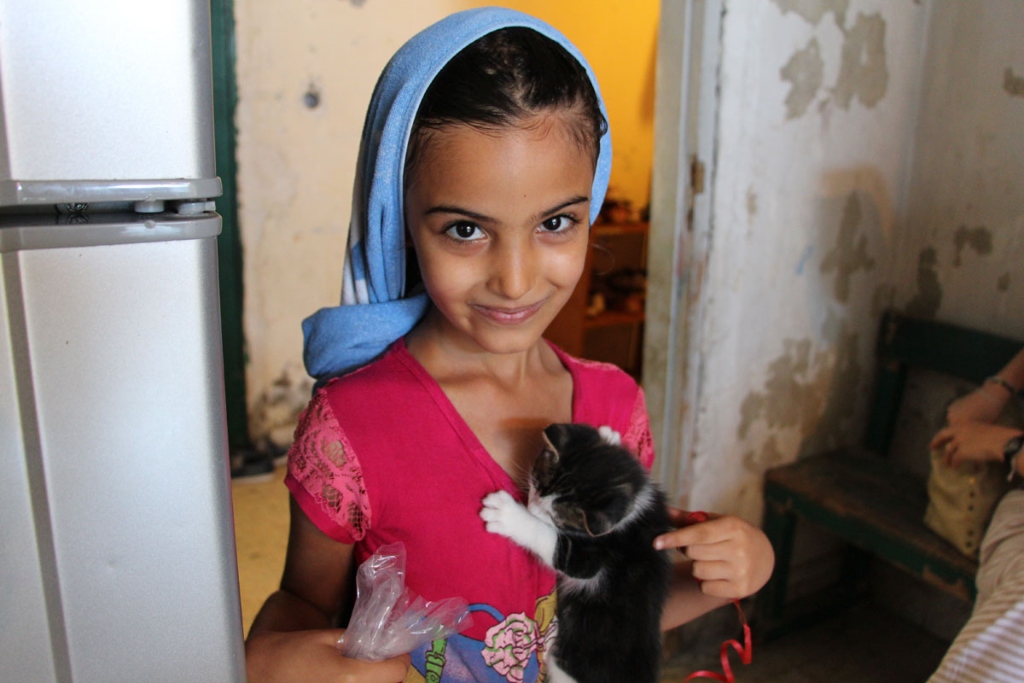 Alia fled her home in Aleppo, Syria and is currently living in Damour, Lebanon. She shared her story through Gruppo Aleimar, an Italian NGO which provides free nutritious meals to refugees in the Damour area. Alia is 7 years old.
Alia fled her home in Aleppo, Syria and is currently living in Damour, Lebanon. She shared her story through Gruppo Aleimar, an Italian NGO which provides free nutritious meals to refugees in the Damour area. Alia is 7 years old.
“The last thing I remember of Syria, before we left, was when my mother was taking me from our place to our grandparents’. The roads were full of dead corpses. I saw dead people with no heads or no hands or legs. I was so shocked I couldn’t stop crying. To calm me down, my grandfather told me they were mean people, but I still prayed for them, because even if some considered them mean, they were still dead human beings.
Back at home, I left a friend in Syria, her name was Rou’a. I miss her a lot and I miss going to school with her. I used to play with her with my Atari but I couldn’t bring it with me. I also used to have pigeons—one of them had eggs. I would feed them and care for them. I’m worried about them, I really pray someone is still caring for them. But here I have a small kitten that I really love! I miss my home a lot. I hope one day we’ll be back and things will be just like before.”
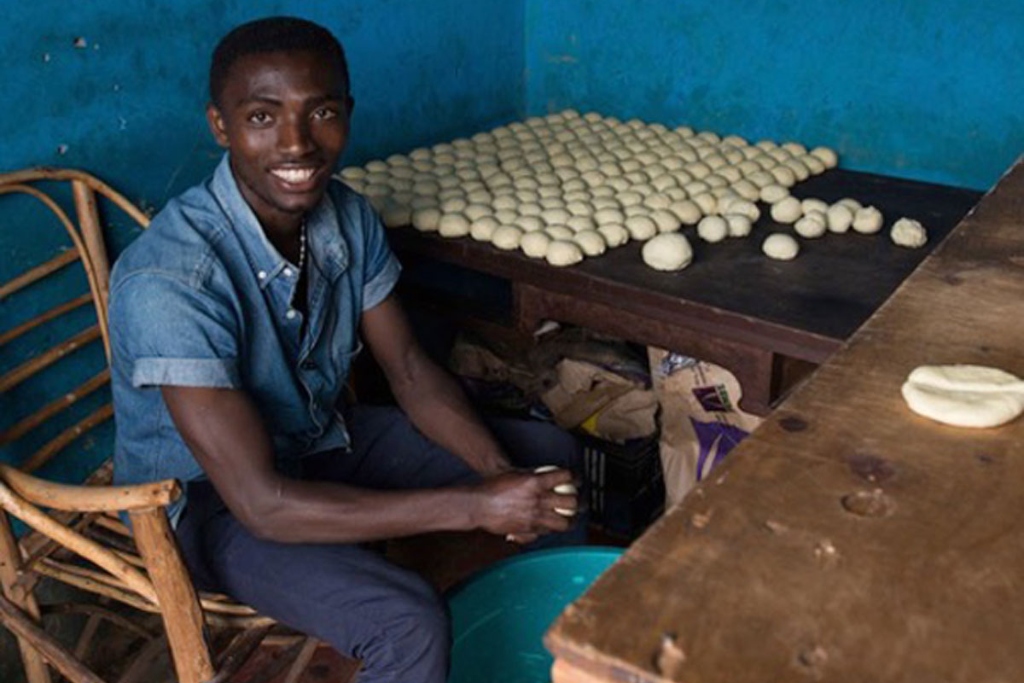 Bizimana fled his home in Rwanda and is now living in Nairobi, Kenya. His story was shared with us by Refugees International Japan, which focuses on the health, education and economic livelihoods of people displaced by conflict around the world.
Bizimana fled his home in Rwanda and is now living in Nairobi, Kenya. His story was shared with us by Refugees International Japan, which focuses on the health, education and economic livelihoods of people displaced by conflict around the world.
Bizimana was 2 years old when his family had to flee the Rwandan genocide to Burundi. From there he moved to camps in Tanzania and now lives in Nairobi, Kenya. He received business start-up training and has established a business that has grown so fast he is now able to start a cafe service. He is also a prize-winning singer.
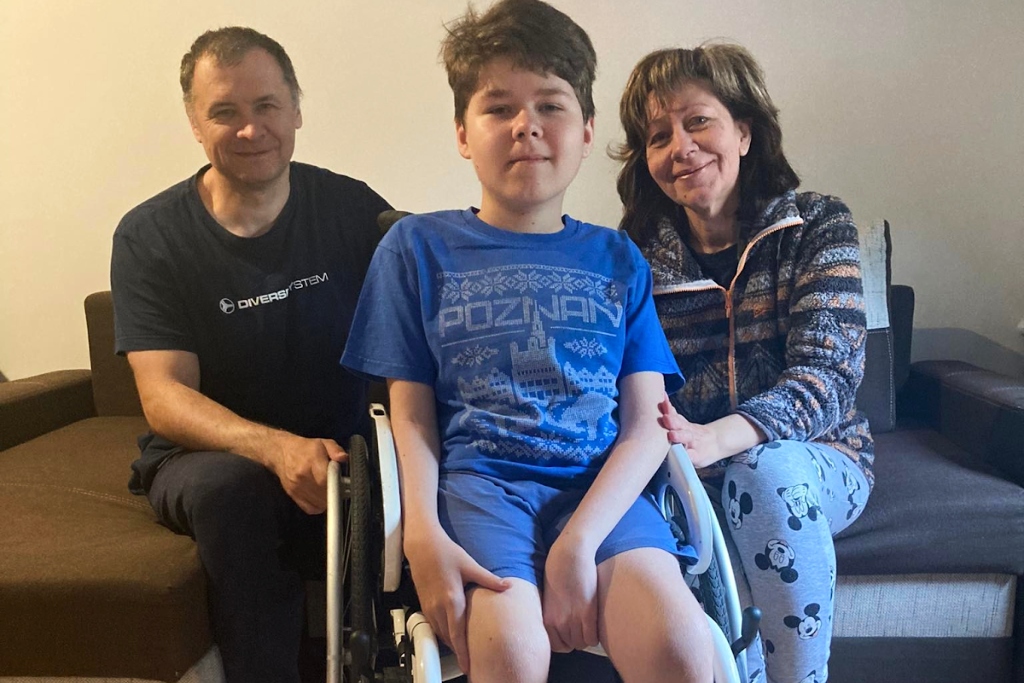 Wictoria, Vova, and their son, Sasha, fled their home in Kyiv, Ukraine. Their story was shared with us by the Doctor Piotr Janaszek PAY IT FORWARD Foundation, which provides physiotherapy and life training for refugees with disabilities who had to leave Ukraine for Poland due to the war.
Wictoria, Vova, and their son, Sasha, fled their home in Kyiv, Ukraine. Their story was shared with us by the Doctor Piotr Janaszek PAY IT FORWARD Foundation, which provides physiotherapy and life training for refugees with disabilities who had to leave Ukraine for Poland due to the war.
“We are from around Kyiv. When the war broke out, we were not only afraid of bombings, we knew that the only way for our son to function normally was to go to Poland, where doctors were always available,” Wiktoria recalled.
Their son, Sasha, has just turned 15. Since he was 2 years old, he has been moving in a wheelchair. He suffers from SMA (spinal muscular atrophy). He is a bright boy who is interested in everything related to the Internet. He is studying remotely in a Ukrainian school and will soon have a well-deserved vacation.
“When the war broke out, we didn’t think long. We quickly packed our bags and moved to Poland, knowing that good people there would help us start a new life,” Vova said.
They escaped from Ukraine during the heaviest shooting. The journey to Poland took four days.
“There is no place on Earth we cannot leave to make our son’s life easier. We were able to take a few pictures from our home in Ukraine, the rest is in our hearts and heads,” Wiktoria said.
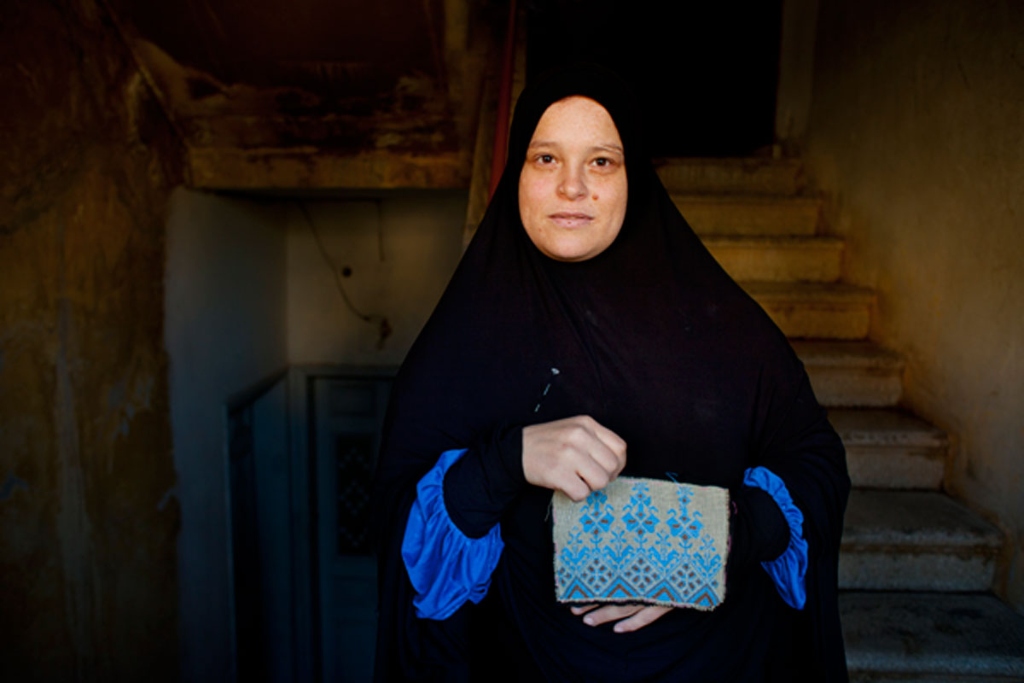 Yara fled her home in Syria and is currently living in Tripoli, Lebanon. Her story was shared with us by Concern Worldwide, which works with displaced persons inside Syria and with refugees and vulnerable host families in Lebanon and Turkey to meet basic needs, improve access to health care, and provide psychosocial support.
Yara fled her home in Syria and is currently living in Tripoli, Lebanon. Her story was shared with us by Concern Worldwide, which works with displaced persons inside Syria and with refugees and vulnerable host families in Lebanon and Turkey to meet basic needs, improve access to health care, and provide psychosocial support.
Yara has loved sewing since she was a child. “My mother taught me when I was a young girl and said it would always be a useful skill,” she said. “I never imagined that one day it would come to mean so much, and provide me with a small income.” Originally from Syria, Yara studied embroidery at a self-help group in Tripoli, Lebanon, run by Concern Worldwide’s local partners. She attended workshops for two hours a day and was able to leave her younger children at a partner-run kindergarten.
“Embroidery is a new skill for me,” she said. “There is so much to learn, and every day we do something different. The main thing is that it occupies my mind and it stops me from thinking too much. Using my hands and creating something beautiful calms me. The lady who teaches the embroidery class is like a mother figure for us.” Yara has been living in Lebanon with her five children and husband for the past two years. “We were a close-knit family, but we had to flee Syria,” she explained. Her parents and one of her sisters were in a refugee camp in Jordan, and two sisters are still in Syria. “I worry about them every day.”
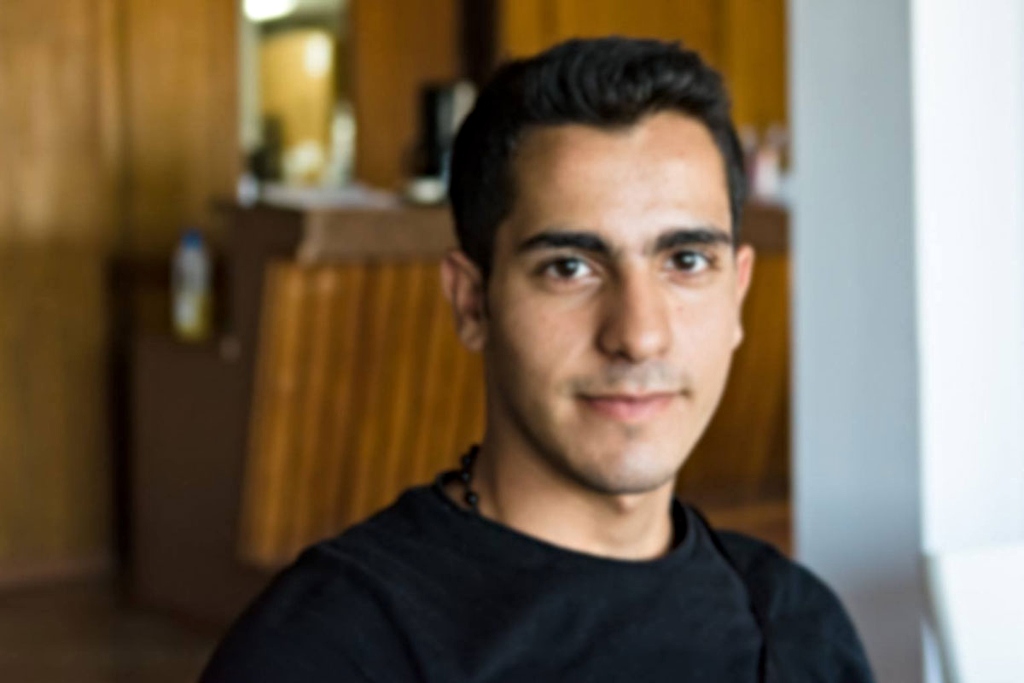 Sabri fled his home in Aleppo, Syria and is currently living in Paiania, Greece. Sabri shared his story with us through Emfasis, a Greek organization responding to the needs of Syrian refugees in Greece and implementing a photography project to help Syrian children address psychological problems. Sabri is 16 years old.
Sabri fled his home in Aleppo, Syria and is currently living in Paiania, Greece. Sabri shared his story with us through Emfasis, a Greek organization responding to the needs of Syrian refugees in Greece and implementing a photography project to help Syrian children address psychological problems. Sabri is 16 years old.
“I am currently staying at a guesthouse for minors and families in Paiania, just outside Athens, Greece with my family. I’d like to go to Germany. We already know my family and I were granted permission to relocate to a German city. We are hoping to start a new page in our lives. I wish I could make people love each other—that is my dream.”
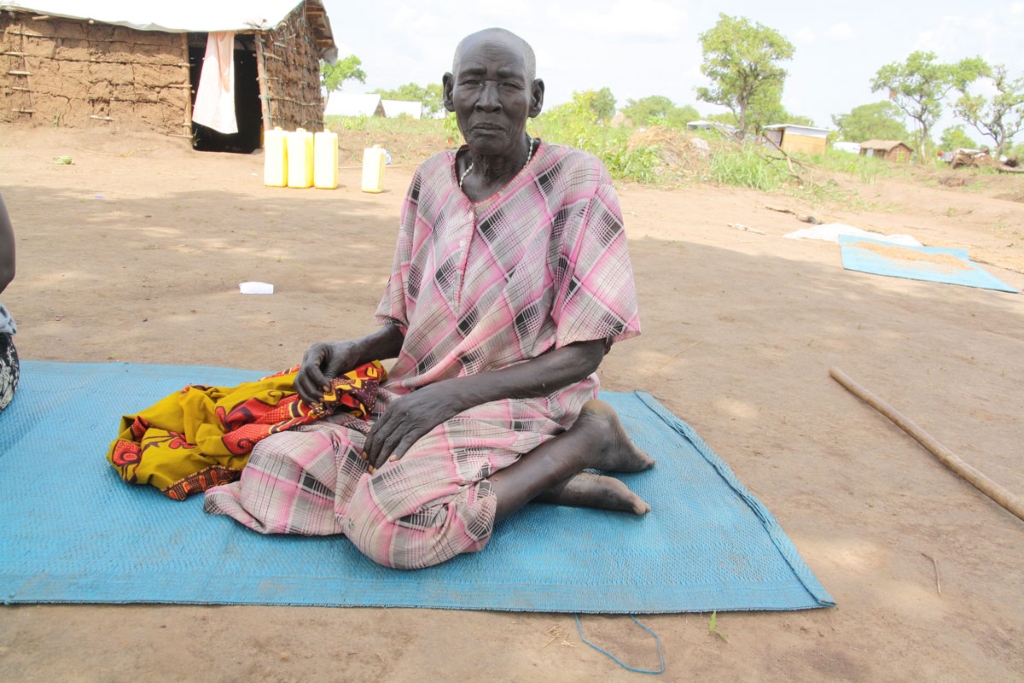 Achan fled her home in Pajok, South Sudan and is currently living in a refugee camp in Lamwo District, Uganda. Her story was shared with us by Hope Ofiriha, a Norwegian NGO that assists South Sudanese refugees with medical care, microfinance, and education. She is 75 years old.
Achan fled her home in Pajok, South Sudan and is currently living in a refugee camp in Lamwo District, Uganda. Her story was shared with us by Hope Ofiriha, a Norwegian NGO that assists South Sudanese refugees with medical care, microfinance, and education. She is 75 years old.
Achan is a widow who had eight children. Seven of her children died during the ongoing war in her home country of South Sudan. As a result, she was left with many orphans to take care of. Before the war, she was a peasant farmer in Sudan who cultivated to sustain her big family. When the war broke out in her community, she and her family ran to save their lives, leaving all their belongings behind. She believes her home has been destroyed by the rebels.
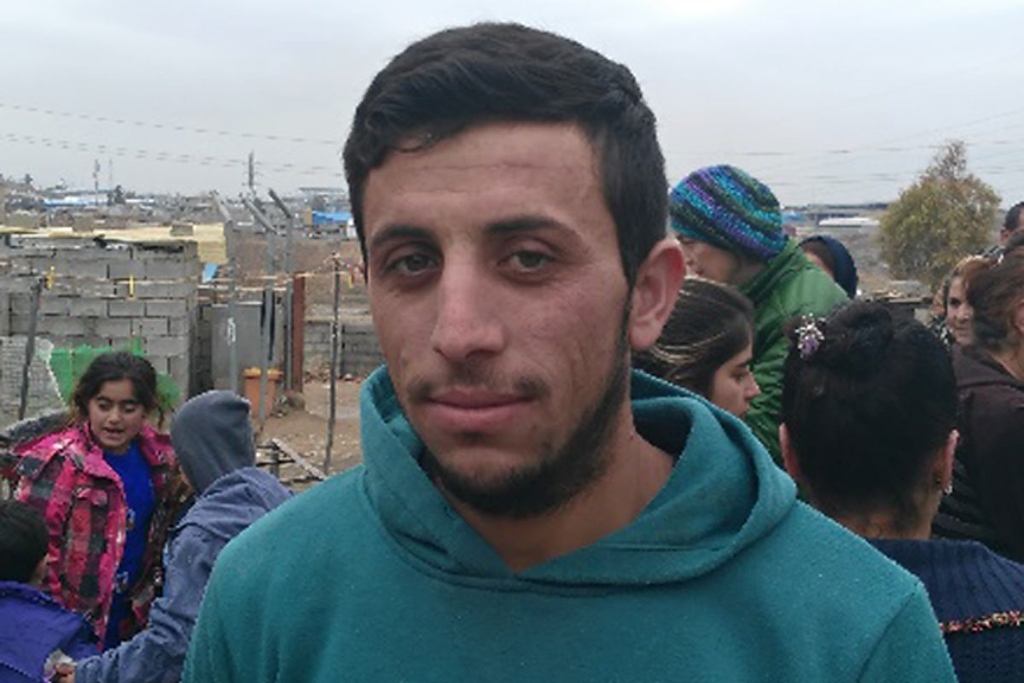 Shahid fled his home in Aleppo, Syria and is currently living is living in an abandoned factory with his wife and other families in Sulaymaniyah, Iraq. He shared his story with us through Global Hope Network International, which provides financial assistance to families fleeing the conflict in Syria.
Shahid fled his home in Aleppo, Syria and is currently living is living in an abandoned factory with his wife and other families in Sulaymaniyah, Iraq. He shared his story with us through Global Hope Network International, which provides financial assistance to families fleeing the conflict in Syria.
“We hid ourselves on the mountain for about eight nights. From the mountain, we saw a battle between [the violent group] and the PKK (Kurdish forces), who fought very courageously. After the sun set, we went to them. They treated us with much respect and took us to a place where there were lots of Yazidis and gave us food. Thus, after eight days of walking between the Iraq and Syrian borders, they helped us reach a quiet region in Northern Iraq. From there, we drove to Sulaymaniyah City.”
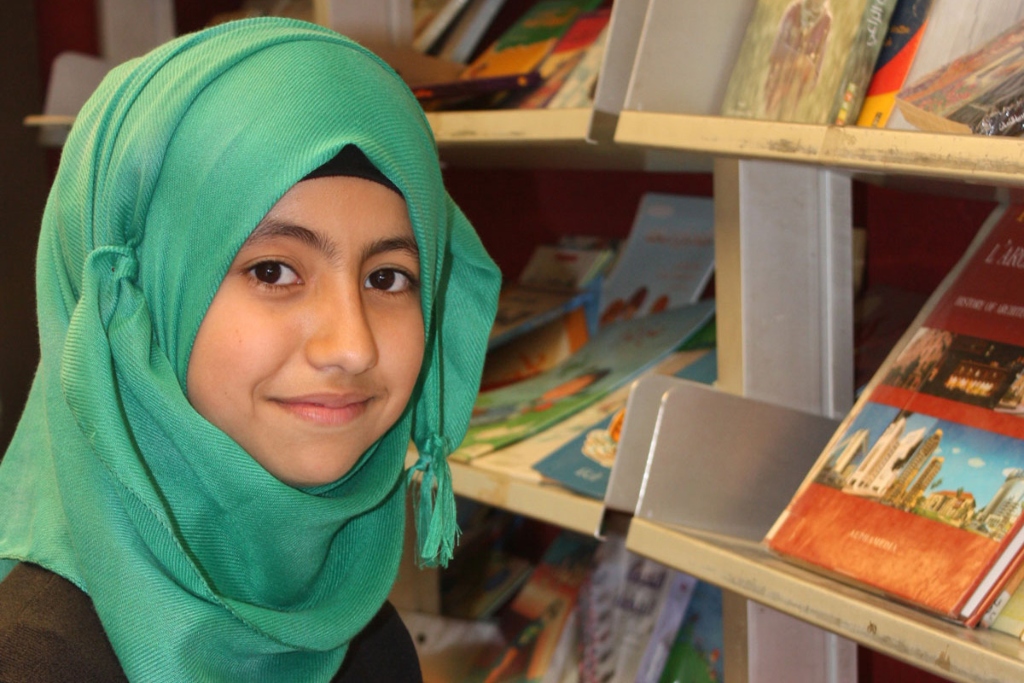 Shafaq fled her home in Dera’a, Syria and is currently living with her family in Bekaa, Lebanon. She shared her story with us through the Middle East Children’s Alliance, which provides emergency support to newly arrived refugees in Lebanon. Shafaq is 14 years old.
Shafaq fled her home in Dera’a, Syria and is currently living with her family in Bekaa, Lebanon. She shared her story with us through the Middle East Children’s Alliance, which provides emergency support to newly arrived refugees in Lebanon. Shafaq is 14 years old.
“I used to have a peaceful life and live in my amazing home in Dera’a. I enjoyed the nature around my house and the food coming from the land. I woke up every morning to the sound of birds singing. The brutality of the civil war forced my family to leave this house and to start the journey to be refugees.
“Since the start of our journey, we moved a lot in Lebanon, and I attended different schools. In the end, my family decided to go close to the border with Syria. We came to this area because just we want to survive. My father is working as an electrician and this is the only income for our family. All of my family we are living in a tiny house with one bedroom, a small kitchen, and a bathroom. We are considered illegal because we don’t have official documents.
“I am behind two years in school because of moving from one school to another. I am still doing very good in my school, and I will continue to do that. I want to finish my education to help my family, and to help other people who want to learn. I consider myself lucky to have Al Jalil Center. I got a lot of educational, emotional, and psychological support. I am also really sad because of the unknown future waiting for me. Every day I wonder where I will be tomorrow. Yes, it’s an unknown future.”
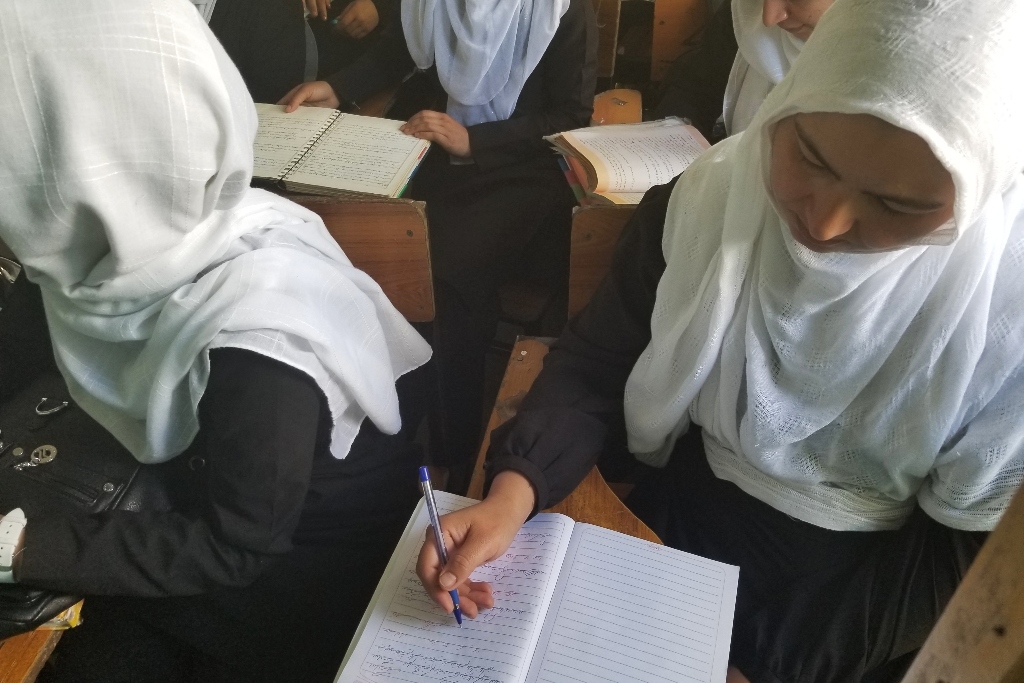 Fouzia fled her home in Kabul, Afghanistan, lived for 14 years in Tajikistan, and has recently returned to Kabul. She shared her story with us through Aid Afghanistan for Education, which works to unlock the potential of young marginalized Afghans, including former refugees and child brides, through education as a means to prepare them to fully participate in society. Fouzia is 24 years old.
Fouzia fled her home in Kabul, Afghanistan, lived for 14 years in Tajikistan, and has recently returned to Kabul. She shared her story with us through Aid Afghanistan for Education, which works to unlock the potential of young marginalized Afghans, including former refugees and child brides, through education as a means to prepare them to fully participate in society. Fouzia is 24 years old.
“During the factional war, my family and I left the country as it became unbearable to live in Kabul. Hundreds, or I think thousands, of rockets were hitting the city every day. We left for Tajikistan and came back when we heard there is peace in Afghanistan. We lived in Tajikistan for 14 years with the hope of going back home. Tajikistan was not our country.” Fouzia wants to be a teacher to help spread peace through education in Afghanistan. For her safety, we did not share her photo, but rather another photo from AAE’s school.
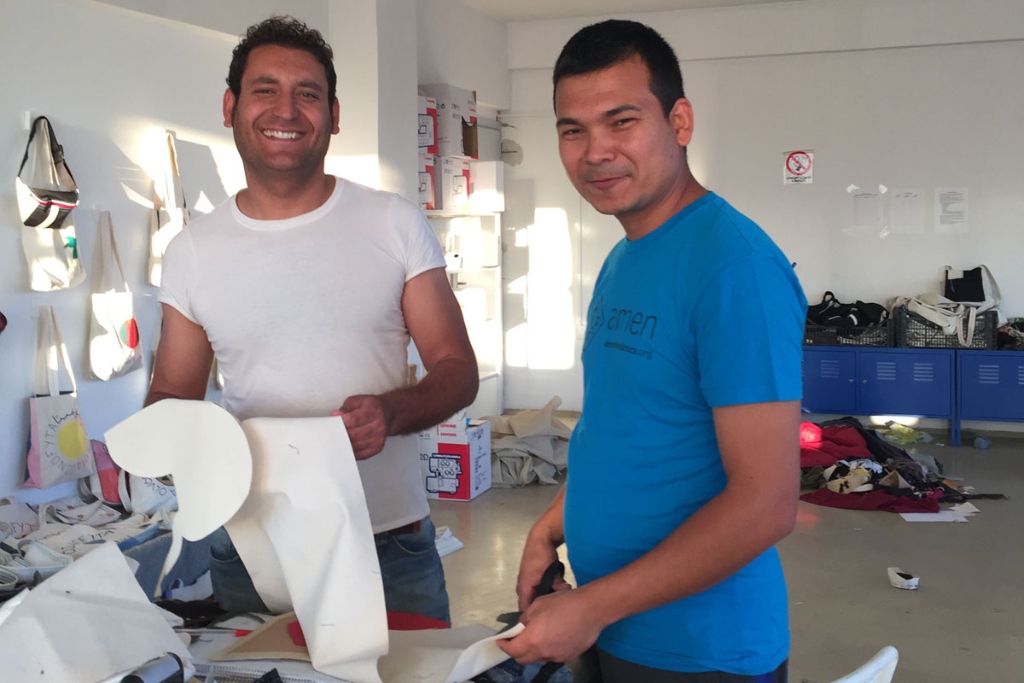 Qais and Daewood fled their homes in Afghanistan and are currently living in Oinofyta refugee camp in Greece. Their stories were shared with us by Do Your Part, a volunteer organization that supports the Oinofyta refugee camp and its residents in Greece.
Qais and Daewood fled their homes in Afghanistan and are currently living in Oinofyta refugee camp in Greece. Their stories were shared with us by Do Your Part, a volunteer organization that supports the Oinofyta refugee camp and its residents in Greece.
They are now running a sewing business in Oinofyta refugee camp! They hope to be granted asylum in Greece so that they can raise their families in safety.
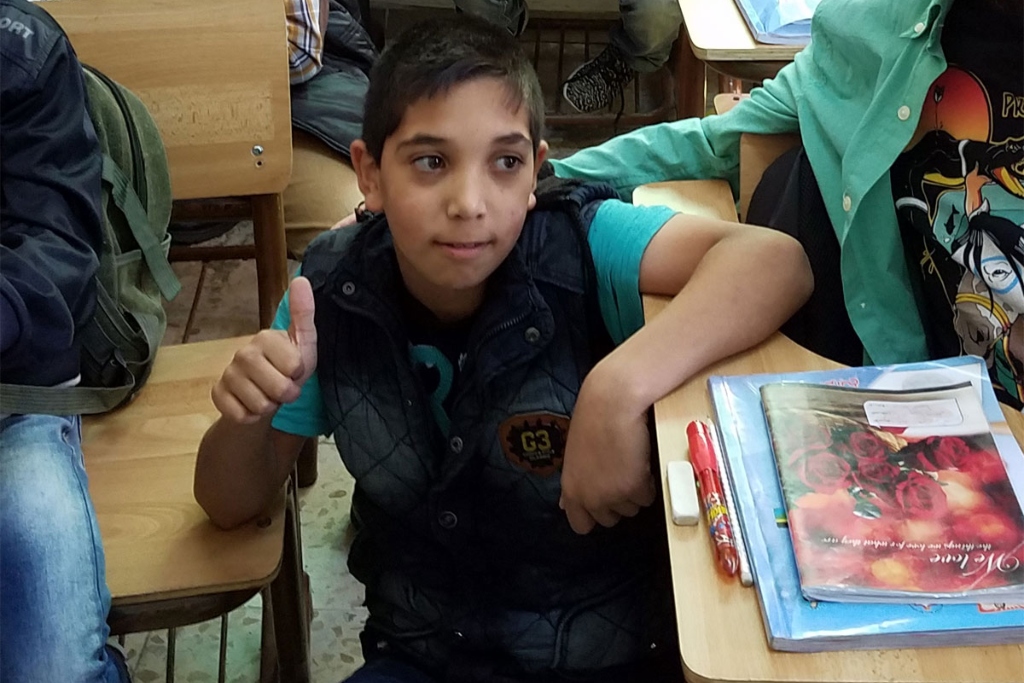 Abdul fled his home in Homs, Syria and is now living in Amman, Jordan. His story was shared with us by International Humanistic Psychology Association, which is providing psychosocial support to Syrian refugee children living in Jordan by conducting disaster healthcare field clinics and training local therapists.
Abdul fled his home in Homs, Syria and is now living in Amman, Jordan. His story was shared with us by International Humanistic Psychology Association, which is providing psychosocial support to Syrian refugee children living in Jordan by conducting disaster healthcare field clinics and training local therapists.
Abdul now lives in an apartment building with forty female head of household refugee families in Amman. His father was killed in Syria. He has been seen a number of times in the psychosocial clinic run within the apartment building. Staff from International Humanistic Psychology Association visited his school because of his complaints of being bullied by one particular student.
He couldn’t believe they would come to try to help him as he had tried with the school teacher and felt unheard. He said it was one of the best things that had happened to him since they came to Jordan. Abdul hopes to drive buses, likes to help others, and loves soccer.
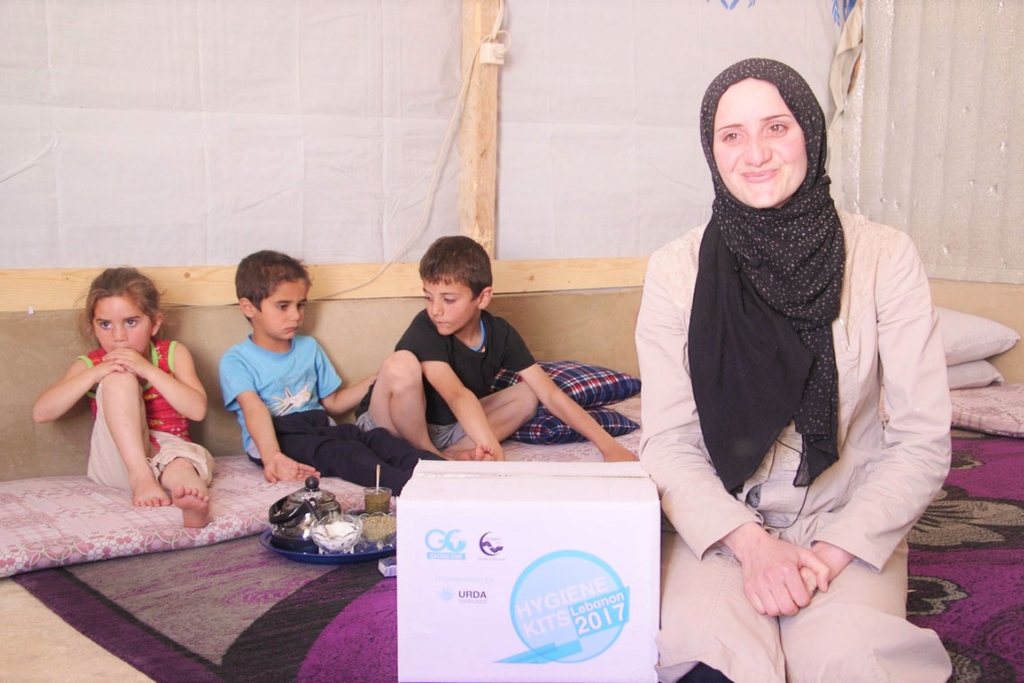 Bara’a and her family fled their home in Syria and are currently living with her three children in a refugee camp in Bekaa Valley, Lebanon. Her story was shared with us by Global One, which supports mothers and children through hygiene and health supplies as well as training local women as midwives to support long-term development.
Bara’a and her family fled their home in Syria and are currently living with her three children in a refugee camp in Bekaa Valley, Lebanon. Her story was shared with us by Global One, which supports mothers and children through hygiene and health supplies as well as training local women as midwives to support long-term development.
Bara’a still experiences trauma surrounding the birth of her youngest child, Rouba, four years ago. Her hands shake as she recalls the memory. Unable to breastfeed her daughter due to mental exhaustion, Bara’a had to rely on donations to buy formula milk to feed Rouba. Once the donations ran out after a week, Bara’a had no choice but to feed her newborn a mixture of sugar and water.
Alongside this, she had to take out loans to provide nappies for all of her children, who still wet themselves due to mental trauma. The uncertainty of their future makes life even more difficult for Bara’a, but she’s still hopeful: “My only dream is to send my children to school.”
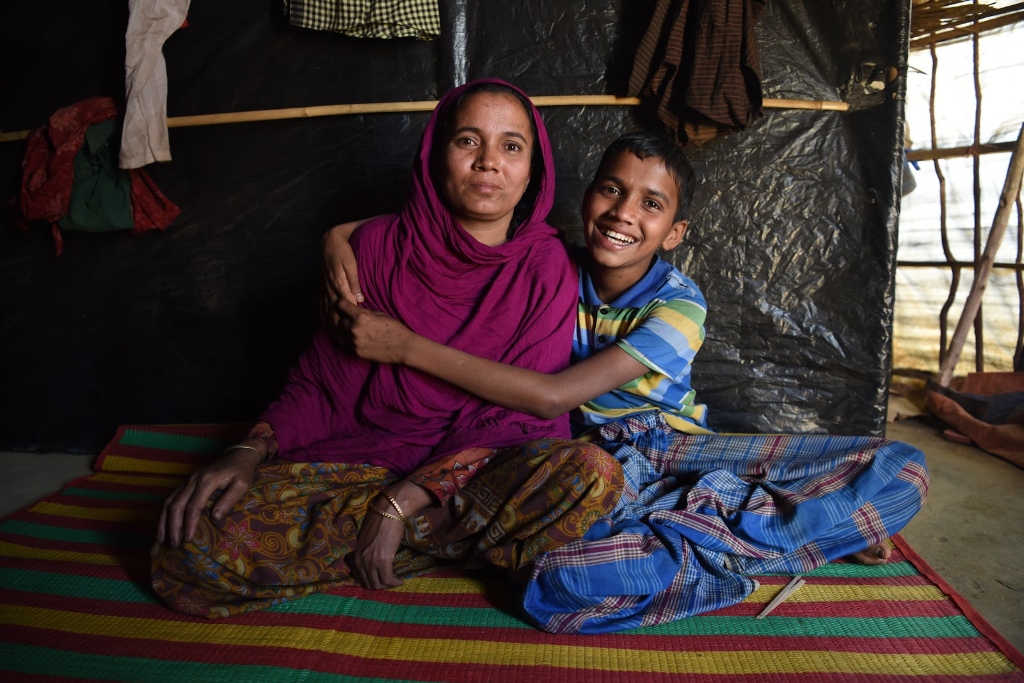 Noorkin and her son Yacob fled their home in Myanmar when Myanmar’s military and Buddhist extremist groups started clearance operations against Rohingya people. They are Rohingya refugees currently living in the Cox’s Bazar refugee camp in Bangladesh. Their story was shared with us by World Vision. Noorkin is 40 years old and Yacob is 10.
Noorkin and her son Yacob fled their home in Myanmar when Myanmar’s military and Buddhist extremist groups started clearance operations against Rohingya people. They are Rohingya refugees currently living in the Cox’s Bazar refugee camp in Bangladesh. Their story was shared with us by World Vision. Noorkin is 40 years old and Yacob is 10.
“Back in Myanmar my father was a farmer and he also went fishing. Along with my siblings, I used to attend school regularly. I was in Grade 2 when we left. We used to learn Burmese literature in school. But it all came to an end the day our house got burnt. The houses in our village were on fire. We couldn’t run to the jungle because it was on fire, too. We fled to another village but that village was also attacked. We were stranded so we fled again to a canal and stayed there for two days with no food. We made it across the border and now we live here in the camps,” Yacob explained.
He continued: “I like being a leader. At the centre, I get the children together and them ask them to follow me when I am doing the actions. I tell them ‘Please, I am going to start reciting the poem, so follow me.’ I am a good boy and a quick learner. I also make other children laugh. It is fun. I want to learn more and more because I want to become a teacher when I grow up.”
“They are slowly getting back to feeling normal again,” Noorkin said about her children. “I desire a bright future for my children where they can be what they want to be.”
Note: Names may have been changed for safety reasons.
Featured Photo: Box for Life for Syrian Refugee Mothers by Global OneFind exactly what you're looking for in our Learn Library by searching for specific words or phrases related to the content you need.